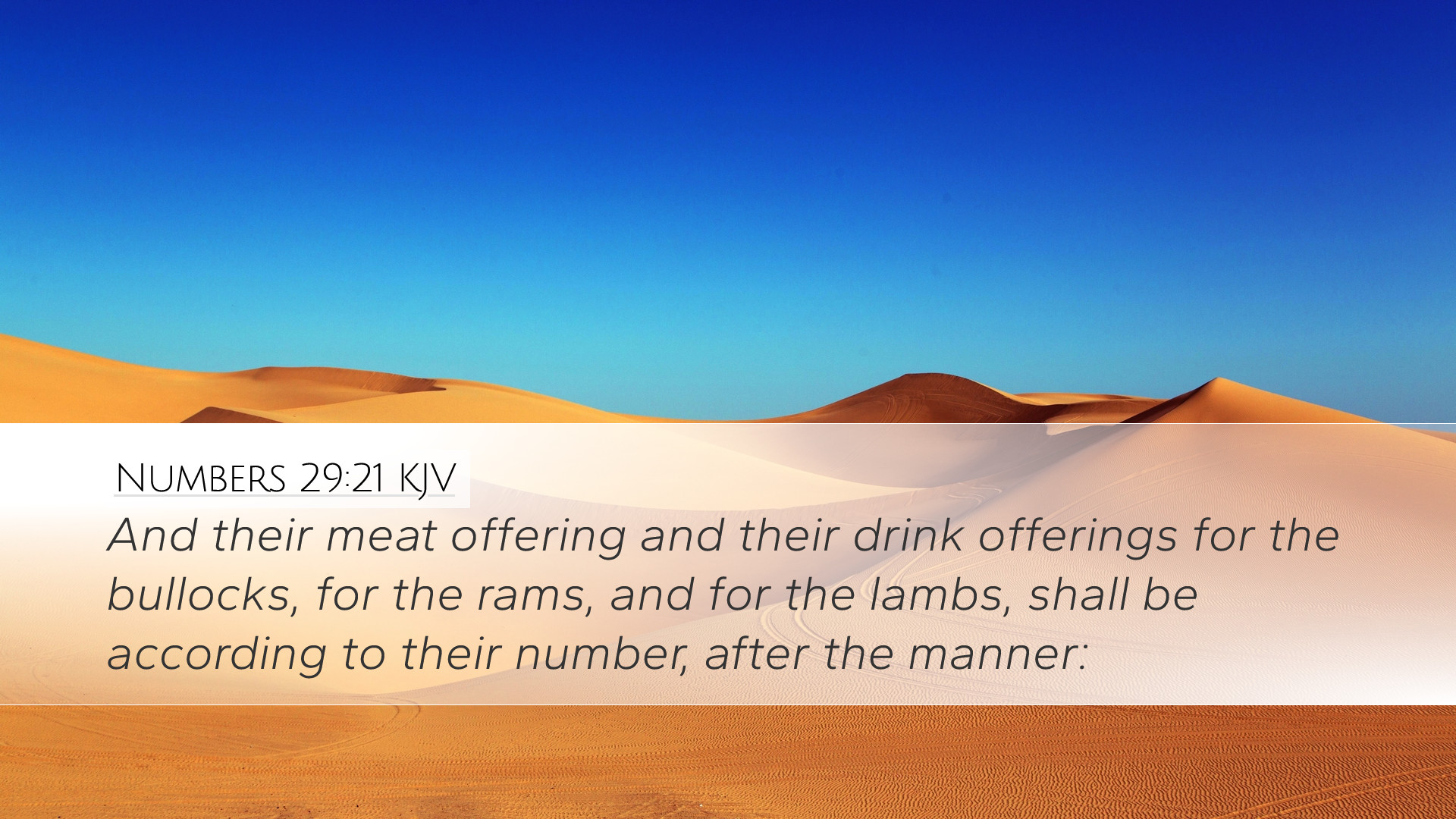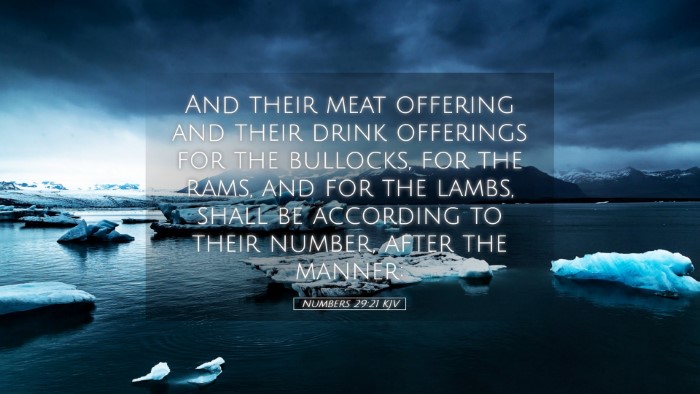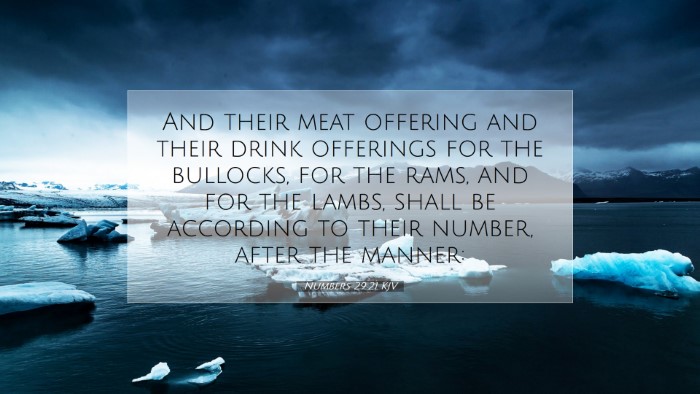Commentary on Numbers 29:21
Numbers 29:21 states:
"And on the fourth day, the son of Abidjan, Mehir, the son of Abidjan, offered his offering."
This verse is part of the detailed account of offerings presented during the Feast of Tabernacles, which encompasses the ceremonial observances designed by God for His people, emphasizing the importance of worship and dedication.
Insights from Public Domain Commentaries
Matthew Henry’s Commentary
Matthew Henry emphasizes the significance of the offerings made during these feasts as a reflection of Israel's devotion to God. He notes that the offerings were not merely acts of worship; rather, they were expressions of gratitude for God's provisions and blessings throughout the year.
- Symbolism of the Offerings: Each offering symbolizes the hope and faith the Israelites held in God's abundant grace, demonstrating their dependence upon Him.
- Covenantal Relationship: The offerings served as a reminder of the covenants made between God and His people, reinforcing their identity as a chosen nation.
- Community Aspect: The communal nature of these sacrifices showed the unity of Israel as they celebrated God's faithfulness together.
Albert Barnes’ Notes on the Bible
Albert Barnes, in his detailed exegesis, provides insight into the ceremonial laws surrounding these offerings. He notes that the frequency and management of these sacrifices were essential for maintaining the spiritual life of the community.
- Historical Context: The offerings were a part of the historical remembrance, linking the present acts of worship to the foundational events of the Israelite faith.
- Order and Organization: Barnes highlights the meticulously organized manner in which these offerings were presented, reflecting the divine order in worship.
- Types of Offerings: The specific offerings mentioned reveal the classifications within sacrificial laws, including burnt offerings, sin offerings, and peace offerings, each serving a distinct purpose in approaching God.
Adam Clarke’s Commentary
Adam Clarke elaborates on the implications of the offerings for both individual and collective worship. He argues that each offering made during the festival was not only an outward act but also a profound commitment to spiritual integrity.
- Personal Reflection: Clarke encourages readers to see the act of offering as a personal dedication, prompting self-examination and a genuine commitment to live righteously.
- Divine Response: He discusses how these offerings were met with divine approval, emphasizing the reciprocal relationship between God and Israel, which can inspire believers to seek an authentic relationship with God today.
- Lessons for Today: Clarke draws parallels between the ancient practices and modern worship, suggesting that today's believers are still called to offer themselves wholly to God.
Theological Implications
This single verse encapsulates profound theological reflections that can be drawn from the totality of the passage. The offering by Mehir represents not just a mere act of religious observance but also infuses meaning into the fabric of Israel's worship life.
- Worship as a Response: The act of worship is inherently a response to God’s unwavering grace, underscoring a relational aspect of faith, which continues to resonate with believers today.
- Redemptive History: Each offering is situated within the larger narrative of redemption, where God’s plan unfolds through His covenant people, foreshadowing New Testament themes of sacrifice and atonement.
- Community and Identity: The shared act of offering reinforces communal identity, urging the Church today to gather and worship collectively as the body of Christ.
Application for the Contemporary Church
As pastors, students, and theologians reflect on Numbers 29:21, several applications emerge that can enhance modern understandings of worship and community engagement.
- Encouraging Generosity: Just as offerings were central to ancient worship, today’s ministry can emphasize generosity, not only materially but also in time, talent, and spiritual gifts as expressions of devotion to God.
- Revitalizing Worship Practices: Understanding the significance of offerings can inspire churches to create more meaningful worship experiences that resonate with congregational devotion and biblical foundations.
- Fostering Spiritual Community: Churches are called to cultivate environments where communal worship and mutual support reflect the reality of God’s presence among His people.
Conclusion
Numbers 29:21 serves as a poignant reminder of the importance of offerings within the worship framework of the Israelites and poses significant challenges and reflections for today’s believers. Through the insights of classical commentators, the timeless nature of these biblical principles offers inspiration for genuine worship, dedicated service, and a deepened understanding of our covenantal relationship with God.


